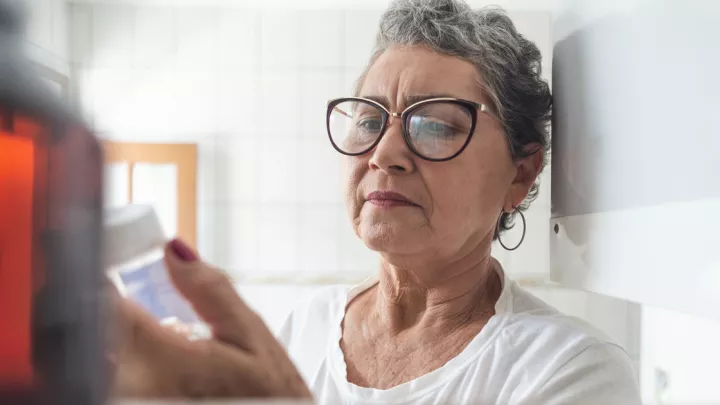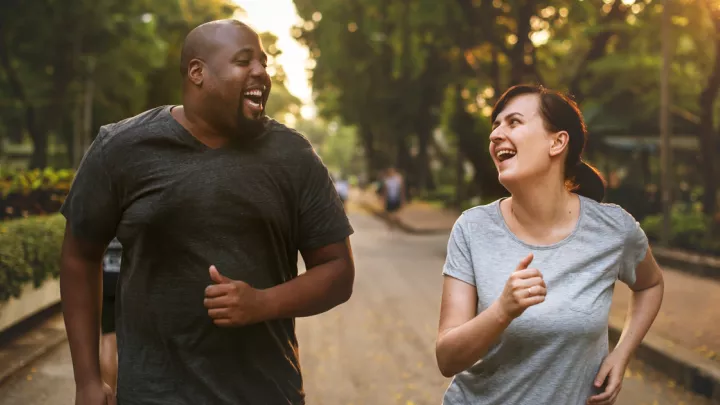Long COVID and POTS: 7 questions about the condition, including if it can go away on its own

Normally your body regulates itself without you having to think about it. You can get up and sit down without a thought.
But some people feel dizzy, tired or even faint when standing up. This syndrome is called POTS. "POTS means there's an imbalance with the nervous system," says cardiologist Dan Anderson, MD, PhD. "Basically, there's an overreaction to simple movements. The body isn't keeping things controlled in a balanced way."
Here Dr. Anderson answers the top questions about POTS.
1. What is POTS?
POTS stands for postural orthostatic tachycardia syndrome. We don't know why it happens, but the syndrome makes simple movements difficult.
How people experience POTS varies. "Some people have subtle symptoms; others are quite profound," says Dr. Anderson. "Some may feel consistently tired and fatigued."
Symptoms of POTS include:
- Dizziness
- Fatigue
- Increased heart rate (tachycardia)
- Fainting
- Nausea
- Anxiety
- Blurred vision
- Headaches
Dr. Anderson explains, "When most people stand up from sitting or lying down, the heart rate increases slightly, maybe from 60 beats per minute to 70 or 80 beats per minute. When people with POTS stand up, the heart rate goes up to 130 beats per minute. The elevated heart rate isn't necessary."
2. How is POTS diagnosed?
When diagnosing POTS, your doctor will ask questions about your symptoms and when they occur. They will also ask how long you've been experiencing symptoms.
Your doctor may perform a tilt table test. It's where you lay on a special table, and then the table slowly rotates up to where you'd be standing. The whole time, sensors monitor your vital signs and can see your heart rate and blood pressure change. "The tilt table test helps us reproduce the symptoms of the syndrome," says Dr. Anderson.
3. Who treats POTS?
Since it's such a wide-ranging disorder, multiple specialties can diagnose and treat POTS. Your primary care provider can help you manage POTS, but so can cardiologists, neurologists, post-COVID clinics and more.
Call 800.922.0000 to make an appointment with a primary care provider.
4. Can COVID-19 cause POTS?
Yes, there is an increased risk of POTS after having COVID-19.
After having COVID-19, 2% to 14% of people are diagnosed with POTS. Compare that to the average percentage of POTS in the general population of just 0.2%.
Many people can experience symptoms of POTS without a diagnosis. After COVID-19, 9% to 61% of people have POTS symptoms.
5. Can POTS cause depression?
POTS can be debilitating. For some, it makes everyday life challenging. That can lead to the development of mental disorders. "POTS is a life-altering event," says Dr. Anderson. "POTS doesn't necessarily cause depression, but they are associated."
6. Can POTS kill you?
The disorder is unlikely to be fatal. However, fainting at the wrong time can be dangerous. "Fainting while sitting in a chair isn't going to hurt," says Dr. Anderson. "Fainting at the top of the stairs, however, is not good."
7. Can POTS be cured or go away?
There are some medications that your doctor can prescribe to control heart rate.
Drinking a lot of water can also help some people. "Some people switch from two glasses of water a day to eight or more glasses of water, and POTS goes away," says Dr. Anderson.
Dr. Anderson has seen POTS go away on its own for some people. Others may have the condition for the rest of their lives. Either way, you can get help from an experienced physician to manage your symptoms.







